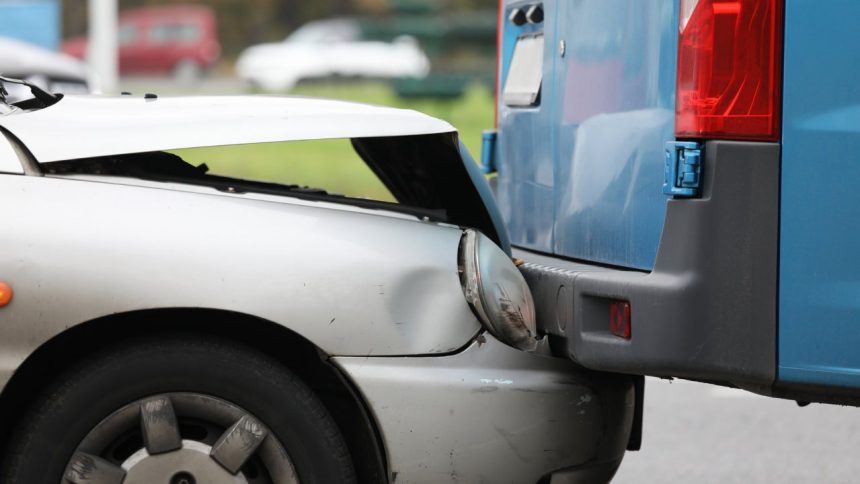Key takeaways
- Personal injury protection (PIP) insurance is mandatory in Michigan.
- PIP can pay for medical bills, lost wages and other costs associated with auto accident injuries for you, your passengers and household members.
- Drivers in Michigan can choose between six levels of PIP coverage, including unlimited PIP.
- In order to opt out of Michigan PIP insurance, drivers must have Medicare (Parts A and B), and all household members must have alternate insurance coverage for car accident injuries.
Like all no-fault states, Michigan sets minimum requirements for no-fault personal injury protection (PIP) insurance, which helps to cover certain medical costs and lost wages associated with car accident injuries. Following the passage of a historic no-fault auto insurance reform bill in 2019, Michiganders have the option to select different PIP coverage limits based on their insurance needs and budget. To help simplify this choice, Bankrate’s insurance editorial team reviewed PIP insurance options in Michigan, including the average cost of coverage.
What is PIP insurance?
Personal injury protection, or PIP insurance, is a type of first-party medical coverage that helps to cover costs associated with car accident injuries. PIP insurance typically covers medical bills for you and your passengers or household members, along with related costs such as rehabilitation, lost wages, replacement services (e.g., lawn care or dog walking) and other necessary costs following a motor vehicle accident injury.
In Michigan, you may need PIP insurance even if you have health insurance. If you already have health insurance, PIP can act as a supplement to your primary health insurance to cover steep hospital bills and ongoing costs such as rehabilitation and in-home health care. However, PIP also covers non-medical costs that a standard health insurance policy won’t, such as lost wages and replacement services.
Is PIP required in Michigan?
As of July 1, 2020, PIP coverage is required in Michigan for all drivers except for certain Medicare members who choose to opt out of PIP insurance. Under the new no-fault law, Michigan gives drivers the option to choose between six PIP medical coverage options based on their budget and insurance needs:
- Unlimited coverage: Previously the default requirement for all drivers, unlimited PIP coverage provides coverage for medical bills and associated costs with no limit.
- Up to $500,000: This option covers up to $500,000 in PIP medical costs and is available to all drivers.
- Up to $250,000: This option covers up to $250,000 in PIP medical costs and is available to all drivers.
- Up to $250,000 with medical exclusion(s): If you or a household member have non-Medicare health insurance coverage that will cover injuries from auto accidents, an exclusion is available for this option.
- Up to $50,000: If you’re enrolled in Medicaid and your household members have another policy, such as a health insurance policy, that will cover auto accident injuries, you may be eligible for this option.
- PIP medical opt-out: Only named insureds with Medicare (Parts A and B) are eligible for this option. Household members must have another insurance policy, such as a health insurance policy, that covers car accident injuries.
When selecting PIP limits, you may want to compare rates for the same level of PIP coverage from multiple companies in order to find an affordable policy.
How does Michigan PIP work?
PIP insurance allows drivers to bypass the often lengthy process of filing bodily injury liability claims with other drivers’ insurance companies. Instead, you can use your Michigan PIP insurance to file a direct first-party claim with your own insurance company for coverage of medical bills and associated costs after you, a passenger in your car or a member of your household is injured in a car accident.
In tort states with no PIP insurance requirement, injured parties must file liability claims with the at-fault driver’s insurance in order to get coverage after an accident. This process can often take weeks or months. With PIP insurance in Michigan, here’s how the process works:
- Drivers select PIP coverage limits: Each driver decides the amount of PIP coverage they’d like to carry when signing up for car insurance or switching to a new carrier. If you’re not sure how much PIP coverage you need, talk to your insurance agent for guidance.
- Drivers file PIP claims with their own insurance after an accident: If you, a member of your household or a passenger in your vehicle sustain any injuries as a result of a car accident, you can file a PIP claim with your auto insurer regardless of who was at fault in the accident.
- Health insurance and PIP insurance may work together: If you have health insurance in addition to PIP coverage, these policies may supplement each other, with PIP covering only part of your medical costs and health insurance paying for the remainder. However, only PIP will cover certain costs, such as lost wages.
- If your costs exceed your PIP limits, you may file a third-party claim: Unless you’ve chosen the unlimited PIP option, it’s possible that your injury-related costs could exceed the limit on your PIP insurance. If that’s the case, you may have the option to file a claim with the at-fault driver’s liability insurance to help cover your costs.
Keep in mind that PIP won’t cover certain crash-related expenses, such as property damage or pain and suffering. If you’re in a serious accident, be sure to speak with your insurance agent about what the various parts of your insurance policy will and won’t cover.
How much does PIP cost in Michigan?
A major goal of Michigan’s PIP insurance reform was to reduce the cost of personal injury protection for Michiganders. The 2019 statute placed specific requirements on insurers to reduce the cost of PIP coverage statewide until July 2028, with greater price reductions for higher amounts of coverage.
As of September 2024, the average cost of Michigan state minimum auto insurance with $250,000 of PIP coverage is $844 per year or about $70 per month. However, the exact cost of PIP insurance in Michigan depends on a host of individual factors, from the level of coverage you select to rating factors like your age, driving record and claims history. If you’re not sure how much PIP insurance you can afford, you may want to speak to an insurance agent and ask for quotes with different levels of PIP coverage.
Frequently asked questions
Read the full article here















